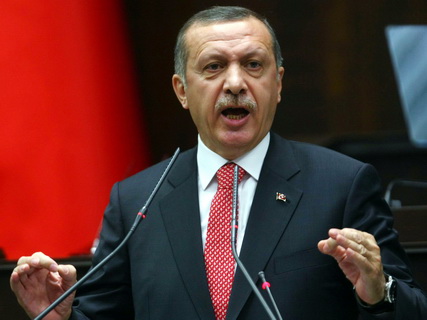RAMALLAH: Indirect peace talks between Israel and the Palestinians got under way on Sunday, a top Palestinian official said after months of shuttle diplomacy by Washington’s special Middle East envoy.
"The proximity talks have started," chief Palestinian negotiator Saeb Erakat told reporters in the West Bank city of Ramallah after a meeting between Palestinian president Mahmoud Abbas and US envoy George Mitchell.
"Today, on May 9, the negotiations have begun at the level of the president (Abbas) and (Israeli Prime Minister Benjamin) Netanyhu," he added, while stressing there would be no direct contact between the parties.
"There are no negotiations between us and the Israeli government," he said. "The discussions will be held with Mitchell and the Americans and they will mediate between the two sides."
The way was opened for the two sides to move ahead on Saturday, when the Palestine Liberation Organization (PLO) gave its backing to a renewal of indirect talks with Israel.
Mitchell, who is to return to Washington on Sunday, will orchestrate the planned four months of indirect talks in the form of shuttle diplomacy between Jerusalem, Ramallah and Washington.
Addressing the weekly cabinet meeting on Sunday, Israeli Prime Minister Benjamin Netanyahu welcomed the Palestinian decision to move forward, but stressed the need to open direct talks.
"Indirect talks must move swiftly to direct talks," he said. "We cannot solve the most serious issues between us… without sitting in the same room."
Top US officials are pressing the Palestinians to start direct talks as soon as possible, Haaretz newspaper said on Sunday.
Quoting a senior Israeli official, the daily said Washington had made clear to the Palestinians that the United States would not unveil mediation proposals or a peace plan before the start of direct, substantive talks between the two sides on final-status issues.
The indirect talks, which both sides are hoping will revive the peace process after a 17-month pause, are expected to cover all final status issues, including borders, security and Jerusalem.
But there is very little expectation on either side that the so-called proximity talks will produce tangible results other than a possible resumption of direct negotiations.
The two sides were due to start indirect talks in March but the Palestinians pulled out after Israel publicized plans to build 1,600 homes in annexed east Jerusalem.
After receiving US assurances the Jerusalem settlement expansion plan would be put on hold, the Palestinians eventually agreed to consider a new attempt at proximity talks.
Direct negotiations last kicked off in November 2007 after a seven-year hiatus but produced no tangible results, and collapsed just over a year later when Israel launched a deadly offensive against Gaza aimed at halting attacks.
Jerusalem and Jewish settlements are among the thorniest issues in efforts to achieve a peace deal.
The Palestinians want east Jerusalem as the capital of their future promised state, but Israel considers all of the Holy City to be its "eternal and indivisible" capital.

